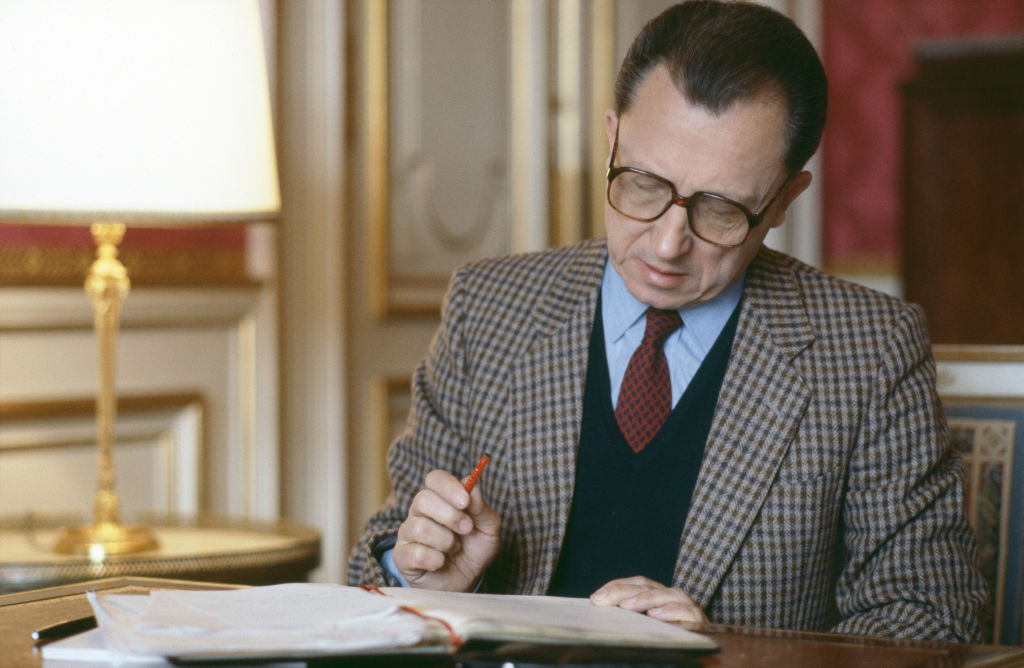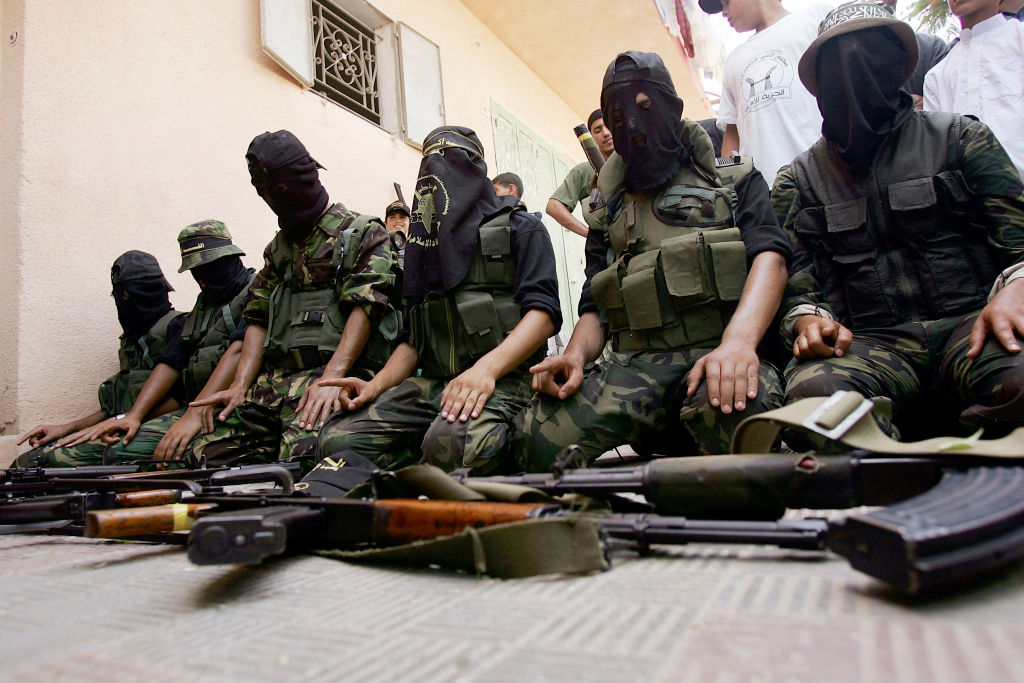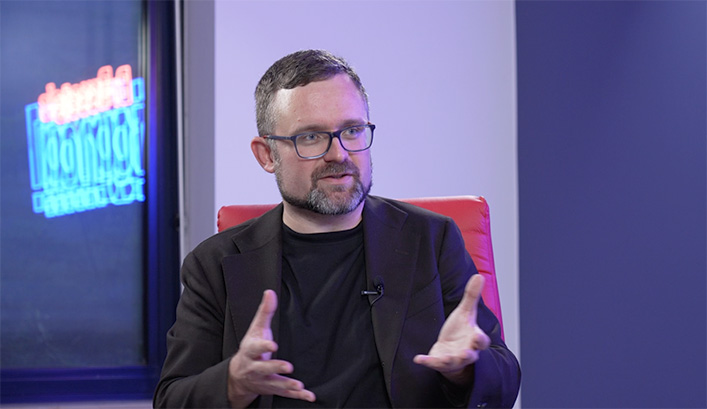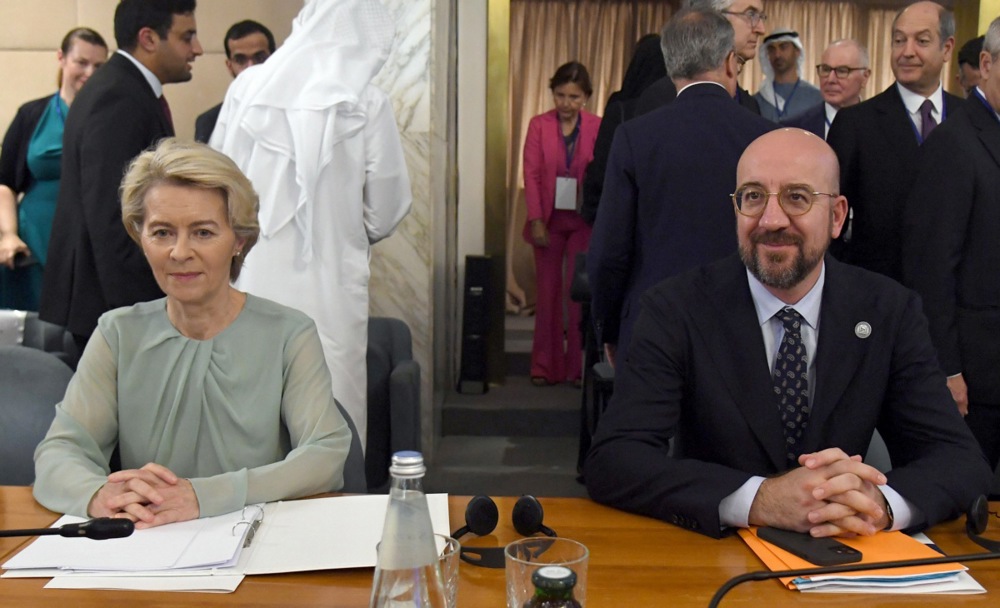As 2023 draws to a close many are looking ahead to what promises to be a big year in European Union politics.
With the EU elections set for June 2024, the bloc’s institutions will have to wrap up their work in the coming few months before the European Parliament begins a fresh round of negotiations on creating a new European Commission.
Before taking the plunge, it is worthwhile recapping some of the highlights – or scandals, really – of the last full year of the EC under its President Ursula von der Leyen.
Here are a few favourites from the Brussels Signal staff looking back over 2023:
- Where are the texts, Ursula?
Our first scandal is a carry-over from the COVID pandemic. And it’s a question of how exactly von der Leyen negotiated contracts with Pfizer to buy in excess of €35 billion worth of vaccines for the entire EU.
It just so happened that von der Leyen was close friends with Pfizer CEO Albert Bourla and appeared to make the EU’s deal with him in what seemed to many to be a personal capacity via calls and text messages.
In 2021, The New York Times asked the see those texts on the grounds of transparency – and was refused.
In January 2023, the US newspaper took the EC to the Court of Justice of the European Union, where the case sits to this day.
Von der Leyen twice dodged taking part in public Q-and-A sessions in front of the European Parliament this year. On one occasion, she avoided that by only answering questions from the heads of the Parliament behind closed doors.
Eyebrows were also raised over her handling of the pandemic. Of particular concern to many was the fact that her husband Heiko von der Leyen is the medical director of Orgenesis Inc. This company was deeply involved in the production of COVID vaccines and is believed to have received millions in EU money.
Requests for the contracts and negotiation papers between the EU and “Big Pharma” have been equally worrying to outside observers, with MEPs being handed documents that were completely blacked out.
- Hey, leader, leave those wolves alone!
A pet project for von der Leyen has been what many see as a crusade of vengeance for her late pony Dolly who was sadly attacked and killed by a wolf known only by its assigned code GW950m.
Well, perhaps it was not a “pet” project…
Still, it seems coincidental that the EC has suddenly taken a keener interest in “managing” the EU’s wolf population. Here at Brussels Signal we covered the EC President’s receptiveness to farmers lobbying for a cull of the animals.
Most recently, von der Leyen announced the EC would push for weaker protections for wolves, arguing that their populations have become “too high”.
- Why yes, the recovery money is being well spent – just trust us!
In the Spring of 2023, the European Court of Auditors, one of the bloc’s main anti-corruption watchdogs, announced that there was virtually no way of knowing if tens of billions of euros from the EU’s COVID recovery package hadn’t been misspent or lost to corruption.
The problem?
After the EC gave the money to Member States, it simply relied on those Member States to prove themselves with their own reports that EU taxpayers’ money was not being squandered in any way. It seemed a case of: “Your honour, I have investigated myself and found myself not guilty.”
Court of Auditors President Tony Murphy said the EC’s “short-sighted planning” had created “an accountability gap”, meaning there was and still is no knowing how many millions have vanished into a black hole.
- Qatargate
No account of the EU’s year could be complete without the pièce de resistance of alleged EU corruption: Qatargate!
In December 2022, the headlines in Europe shouted the news that Belgian police had conducted a number of raids across Brussels involving several MEPs belonging to the centre-left S&D Group and their family members.
Perhaps the loudest of these related to one of the leading suspects, Greek MEP Eva Kaili.
Prosecutors allege that suspected MEPs received bribe money and gifts from Qatar, Morocco and Mauritania in exchange for granting those countries influence over EU political decisions and policy making. More than a year later, with several arrested and in excess of €1.5 million seized, the case has dissolved into a quagmire of allegations and counter-allegations.
Initially, Italian MEP Antonio Panzeri, the alleged ring-leader of the corruption circle, took a plea-bargain deal with the Belgian police and pinned much of the blame on Kaili and her partner Francesco Giorgi, as well as fellow Italian MEP Andrea Cozzolino and Belgian MEP Marc Tarabella.
Kaili claims she has been made a scapegoat in favour of another MEP called Maria Arena. While Panzeri maintained that Arena was not involved in the corruption ring, his claims were brought into question when a photo surfaced of him and Arena on holiday in Rome. Some commentators speculated that the two MEPs were “perhaps more than just friends”.
Things got even stranger when it emerged that Arena’s son Ugo Lemaire was co-running a legal cannabis business along with the son of the then-Qatargate chief prosecutor Michel Claise. After Claise was recused from the case, a police raid found more than €200,000 in Arena’s son’s apartment.
As a result, the entire Qatargate case is now at a standstill with some speculating the case may be fatally compromised.
Yet, with so many EU bigwigs implicated, with the EU itself appearing half-hearted in its anti-corruption crackdown and with so many questions still unanswered, Qatargate may very well be the gift that keeps on giving – for the media – well into 2024.
- EC’s own anti-corruption watchdog underesimates ‘lost money’. By about 1,600%
Not all EU anti-corruption watchdogs are made equal, apparently.
This much seemed to emerge in November following a damning report by the European Public Prosecutors Office (EPPO), an independent EU watchdog overseeing the efficiency of the EC’s own in-house watchdog, the European Anti-Fraud Office (OLAF).
In its report, the EPPO claimed more than €5 billion had been “lost” from the EU budget due to fraud, way more than the EC’s own stated loss of €300 million.
Coming on the heels of the Court of Auditors’ report, the news raised and still raises questions about how capable the EU, a self-declared bastion of spotless, morally integral government, is of keeping its own house in order.
- EU sends money to Hamas (and other Islamist extremists)
So, while the EU appears to have trouble with money slipping through its fingers, it also seems to have been embarrassed by where that money can end up.
This issue most recently manifested itself in outrage over EU funds being sent to Palestinian authorities, Hamas terrorists in particular.
In one instance, the EU gave authorities in the Gaza Strip some €100 million for water pipeline projects, despite videos from Hamas bragging of making rocket launchers out of said pipes.
MEPs and Israeli authorities added similar claims, pointing out how Palestinian authorities used EU money intended for education to print school textbooks that apparently glorified terrorists.
This is not the only area in which the EU appears to many to be lax towards Islamist extremists, or so the Right claims. As reported here in Brussels Signal, the EU had previously given cash to Islamic organisations that stated a “woman needs to obey her master”, albeit funding that it subsequently pulled.
- “A Spanish interpreter for a Latin American conference? What would anyone need that for?”
In the great whirlwind of international conferences in the EU, the following cock-up is, while not a major one, a personal favourite.
In the run-up to the big summit between the EU and Latin American leaders earlier this year, the EU hosted a smaller meeting of Latin American and European NGOs and Youth Groups. The idea was that the participants would come forward with a series of issues for the national leaders to discuss at the international summit.
The meeting descended into chaos as participants realised that none of the moderators could speak Spanish or Portuguese!
The European Commissioner for International Partnerships, Jutta Urpilainen, nevertheless made a flying visit to the summit and was happy to advertise her speech afterwards. Unfortunately, those present said the talk showed Urpilainen had “zero” understanding of Latin America.
Perhaps she will fare better in her presidential run back in her native Finland – which leads us neatly to our final point…
- “Like rats from a sinking ship”
So how good is the Team Spirit in “Team Europe”?
Well, not so good if the number of Commissioners and other officials leaving their Berlaymont HQ is anything to go by.
Alongside Urpilainen’s punt at the Finnish presidency, this year has seen the EC’s “Green Pope” Frans Timmermans depart to make a run for Dutch national politics, as well as Bulgarian Commissioner Mariya Gabriel’s return to Sofia.
It has also seen EC bigwig Margrethe Vestager make a (failed) attempt to become President of the European Investment Bank.
While it is certainly true that events in national politics have dictated these choices, rumours abound that personal relations in the von der Leyen-led EC are a bit chilly, with some saying that its various offices barely communicate with each other.
Von der Leyen herself seems to have poor relations with other EU leaders. Her tit-for-tat spat with European Council President Charles Michel has been well-documented since the “sexist Sofagate” scandal and she appears to be continually up-ended in foreign policy by Josep Borrell. In addition, her relations with Manfred Weber, the leader of her centre-right political group the European People’s Party, seems to grow more fractious by the day.
So here’s to 2024!
Many of these scandals are still ongoing.
No doubt, there will be a whole lot more to emerge before Europe heads to the polls once more in June.
So, if scandals, from the silly and gossipy to the serious and outrageous, are your thing, please stick around with Brussels Signal for the coming year.
Because believe us, there’s a whole lot more where that came from.





